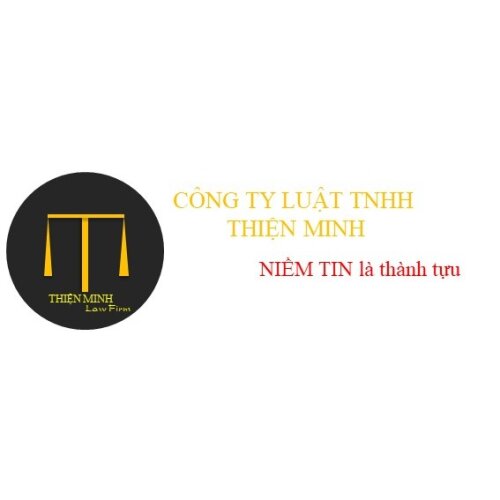Best Tax Increment Financing Lawyers in Vietnam
Share your needs with us, get contacted by law firms.
Free. Takes 2 min.
Or refine your search by selecting a city:
List of the best lawyers in Vietnam
![[DDC] DONG DU INTERNATIONAL ACCOUNTING, TAXES & LEGAL CONSULTING GROUP HCMC VIETNAM](https://lawzana.com/storage/firms/2690/17617306202399.jpg)
About Tax Increment Financing Law in Vietnam
Tax Increment Financing (TIF) is a public financing method that is used for subsidizing infrastructure and community improvement projects in Vietnam. Essentially, TIF uses future tax revenues generated from the increase in property values as a result of the improvement project to finance the initial investment. This approach helps in stimulating economic development without immediately impacting local taxpayers. Although relatively new, TIF is seen as a progressive financing strategy employed in urban areas globally, including Vietnam, to encourage growth and development.
Why You May Need a Lawyer
Engaging in Tax Increment Financing projects can be complex, given the multifaceted legal and financial structures involved. Common situations where legal expertise may be necessary include:
- Understanding the legal framework and compliance with local laws and regulations.
- Negotiating and drafting contracts with developers and government entities.
- Resolving disputes related to financing agreements or project implementation.
- Ensuring proper allocation and use of funds in accordance with the law.
- Advising on tax implications and maximizing potential benefits of TIF.
Local Laws Overview
Vietnam’s approach to TIF and infrastructure financing is grounded in several legal documents and policies, focusing on urban planning and public investment. Key aspects of these laws include:
- Regulations regarding the creation and approval of TIF districts and projects, ensuring they align with national and local development plans.
- Stipulations about public-private partnerships and the roles each party plays in a TIF project.
- Guidelines on the use of tax revenue, requirements for transparency, and accountability in fund management.
- Provisions related to environmental assessment and compliance with sustainable development goals.
The legal landscape for TIF is continually evolving to adapt to new economic and environmental conditions, necessitating updated legal insight.
Frequently Asked Questions
What is the purpose of Tax Increment Financing?
The primary aim of TIF is to stimulate economic growth and development, particularly in underdeveloped or redevelopment zones, by using anticipated future tax revenues to finance current infrastructure improvements.
How does TIF affect local taxes?
TIF is designed to use the increase in property tax revenues generated by improved property values within a designated area to repay the cost of the improvements. It should not increase existing tax levels.
Who can initiate a TIF project?
Typically, local governments or authorized development authorities initiate TIF projects, sometimes in collaboration with private developers.
How long does a TIF district last?
The duration of a TIF district can vary, typically between 15 to 30 years, or until the project costs are fully paid off from the increment of taxes generated.
Are there any risks associated with TIF?
Yes, risks include potential insufficient tax revenue to cover the project costs, misallocation of funds, and possible disputes among stakeholders.
What types of projects can be financed with TIF?
TIF can finance a range of projects, including public infrastructure, transportation systems, environmental cleanups, and commercial developments.
Is environmental assessment required for TIF projects?
Yes, most TIF projects require environmental assessments and must comply with relevant sustainable development regulations.
Can TIF funds be used for operational expenses?
TIF funds are generally restricted to capital projects and improvements, not operational expenses.
How is accountability ensured in TIF projects?
Through legal requirements for public reporting, audits, and compliance with transparency measures, accountability in managing TIF funds is maintained.
What is the role of a lawyer in a TIF project?
A lawyer provides critical services such as contract negotiation, legal compliance review, dispute resolution, and advisory on financial and tax implications.
Additional Resources
Several resources can offer guidance and information on TIF in Vietnam, including:
- Vietnam Ministry of Finance for policies and guidelines on public financing.
- Local government councils, often in urban areas, to learn about specific TIF districts and projects.
- Professional organizations such as the Vietnam Real Estate Association for insights and updates.
- Legal firms specializing in public finance and infrastructure development for expert advice.
Next Steps
If you need legal assistance with a TIF project, consider these steps:
- Research and identify law firms or legal experts specializing in TIF and public finance.
- Schedule a consultation to discuss your specific situation and needs.
- Prepare all relevant documentation and information related to your project or query.
- Collaborate closely with your legal advisors to develop a strategic plan addressing legal, financial, and compliance aspects.
Lawzana helps you find the best lawyers and law firms in Vietnam through a curated and pre-screened list of qualified legal professionals. Our platform offers rankings and detailed profiles of attorneys and law firms, allowing you to compare based on practice areas, including Tax Increment Financing, experience, and client feedback.
Each profile includes a description of the firm's areas of practice, client reviews, team members and partners, year of establishment, spoken languages, office locations, contact information, social media presence, and any published articles or resources. Most firms on our platform speak English and are experienced in both local and international legal matters.
Get a quote from top-rated law firms in Vietnam — quickly, securely, and without unnecessary hassle.
Disclaimer:
The information provided on this page is for general informational purposes only and does not constitute legal advice. While we strive to ensure the accuracy and relevance of the content, legal information may change over time, and interpretations of the law can vary. You should always consult with a qualified legal professional for advice specific to your situation.
We disclaim all liability for actions taken or not taken based on the content of this page. If you believe any information is incorrect or outdated, please contact us, and we will review and update it where appropriate.
Browse tax increment financing law firms by city in Vietnam
Refine your search by selecting a city.
















